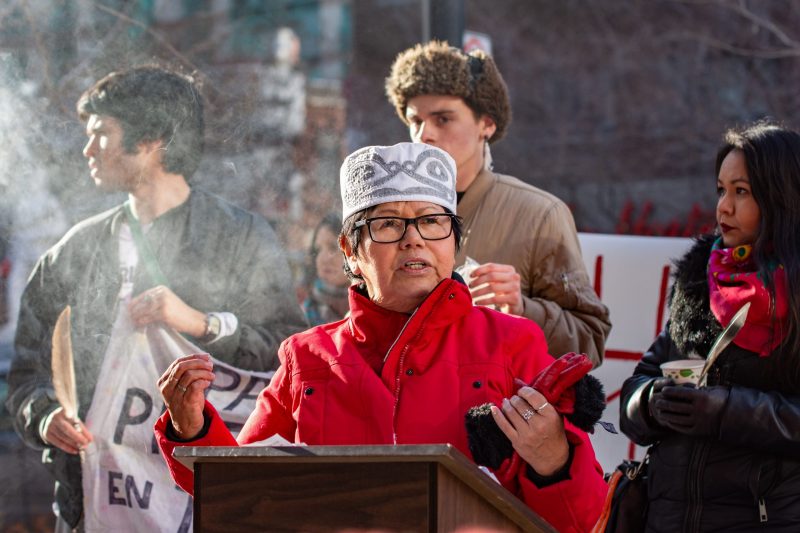First Voices Week Concordia celebrated its fifth year last week, from Feb. 3 to 7.
The week-long series of events was led by Indigenous students, faculty and staff at Concordia University, in collaboration with several faculty departments and organizations.
The organizing committee offered workshops, documentary screenings, a solidarity gathering for the Wet’suwet’en Nation in their land defense, an art exhibit and lectures, among other events.
Cathy Richardson, director of First Peoples Studies, said that this event series sends a clear message.
“We’re here,” she said. “You didn’t kill us all off, I know the government tried. We still face issues of structural violence, but we’re here. We’re trying to thrive and have influence.”
Richardson said that First Voices Week is crucial.
It affirms the Indigenous presence on campus, allows Indigenous students to see themselves reflected in the institution as well as taking a leadership role in the programming,” she explained.
For example, the week-long art exhibit, located at the EV junction, featured art from current Indigenous students at Concordia. Alyssa Isaac, a Mi’gmaq artist from the community of Litsugu, Quebec, studies electroacoustics; and Morning Star Fayard, a Metis, Cree First Nation from the Cree community of Mistissini, studies economics.
Isaac’s art piece was an auditory experience that used the sound of beads running over each other, which were altered and layered to give off a “dream-like vibe.” Fayard displayed traditional winter clothing made from moosehide, like gloves and mocassins, all decorated with beadings or sewn illustrations. The clothing was coupled with a poem titled “Thankful~,” which gave her thanks to the moose who was used to make the clothing, and whose body was used without a spare.
On Wednesday, the same day as the Solidarity Gathering for the Wet’suwet’en Nation, First Voices Week Concordia published a letter on Facebook, reiterating their solidarity. As stated in their press release, the Coastal GasLink (CGL) never obtained consent to operate within unceded Wet’suwet’en territory. In the release, First Voices Week Concordia condemns the use of violence against Indigenous nations by the RCMP and calls for their immediate withdrawal from Wet’suwet’en territory.
First Voices Week also gave their “solidarity to the Wet’suwet’en Hereditary Chiefs who represent all five clans of the Wet’suwet’en Nation and who unanimously reject the CGL pipeline on their territory.” First Voices Week calls on everyone to pay attention to the violence and intimidation directed toward the Wet’suwet’en nation at this time and infers that these acts are a clear indication of persisting Canadian colonialism.
At the Loyola Campus, in collaboration with the Hive Free Lunch Program, there was a special lunch made from traditional Three Sisters recipes using corn, squash, and red beans, coupled with a virtual reality short film experience. According to the presentation, the three plants were historically the base of the Huron-Wendat and Mohawk diet. It was explained that the practice of growing these plants together is still done today, as the leaves of the corn plant protect the squash from the elements, like wind, while the squash leaves prevent weeds from growing. The beans, in turn, release nitrogen into the soil and climb up the corn stalks as they grow.
“Centering Indigenous achievements and issues raises awareness of the possibilities of Indigenous rights taking more space in Canada and having others accommodate these changes towards a just and equitable society, where Indigenous treaties and lands are respected,” said Richardson.
Photos by Laurence Brisson Dubreuil
